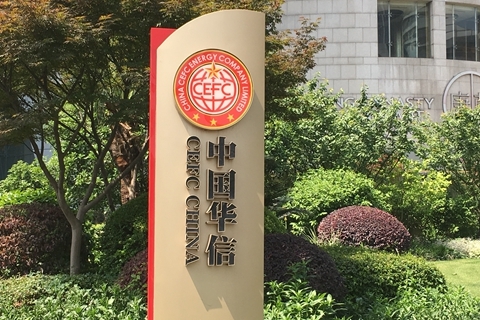CEFC deepens oil ties with Russia Rosneft deal



Chinese conglomerate CEFC has agreed to buy a 14.16 percent stake in oil major Rosneft for $9.1 billion from a consortium of Glencore and the Qatar Investment Authority, strengthening energy partnerships with Moscow, according to an announcement by Glencore released on Sept 8.
Following the deal, CEFC will become the third-largest shareholder in Rosneft after the Russian government and BP.

CEFC Chairman Ye Jianming was quoted by www.yicai.com as saying that the deal, China's second-largest oil and gas acquisition after the $15.1 billion purchase of Canada's Nexen by CNOOC in 2013, will enable further cooperation between CEFC and Rosneft while meeting China's energy demand.
The transaction is conditioned on the consortium electing to proceed following the completion of final negotiations and on receipt by CEFC of all necessary regulatory approval, Glencore said in the announcement.
Following the transaction, Glencore and QIA would retain an economic interest in Rosneft shares commensurate with their original equity investment announced in December 2016, which amounts to approximately 0.5 percent and 4.7 percent respectively, it said.
CEFC was quoted by Reuters as saying the deal would give it annual equity oil production of 42 million metric tons (840,000 barrels per day) and access to oil and gas reserves of 2.67 billion tons (20 billion barrels).

According to Han Xiaoping, chief information officer of China Energy Net Consulting, China and Russia complement each other as producers and exporters on the one hand and importers and suppliers on the other, which creates a perfect atmosphere for win-win deals.
The deal will allow China, the world's second-largest energy consumer, to boost cooperation with the world's top oil producer, which also tops the list of Chinese crude suppliers, he said.

Rosneft CEO Igor Sechin was quoted by Reuters as saying CEFC would get access to Rosneft's oil fields and petrochemical projects in East Siberia to guarantee bigger synergies.
China and Russia have strengthened their oil and gas cooperation in recent years, including the Yamal liquified natural gas project in the Arctic region of Russia, the world's first integrated project for polar natural gas exploration, development, liquefaction and transportation. Earlier this decade, Beijing also loaned $25 billion to Russia to help it build a pipeline from Siberia.
Moscow has been seeking to boost energy cooperation with China, especially since the US sanctions on Russia, which also make it challenging for large Western firms including Glencore to cooperate with state-owned firms such as Rosneft.
Despite the optimistic oil cooperation, the transactions have also raised questions among analysts over its lack of transparency.
Li Li, the energy research director at ICIS China, a consulting company that provides analysis of the energy market, said the deal was arranged hastily and the details remain unclear.
No comments:
Post a Comment
Comments always welcome!